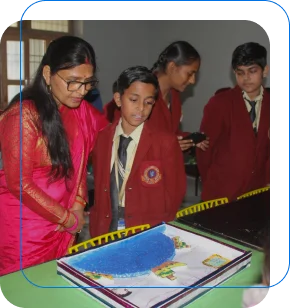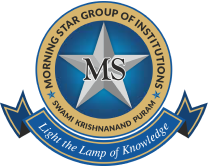Academics
Home / Academics
Morning Star’s Educational Ideals and Criteria
Elementary School
Covering Kindergarten through Grade I, the elementary school adopts a non-formal approach to learning. Children are encouraged to explore their environment while being introduced to basic concepts in language, mathematics, computers, art and craft, dance, and music. Activities are designed to develop fine motor skills and enhance sensory development, with an integration of physical education led by trained personnel. In this nurturing environment, children begin to see themselves as responsible and capable learners for the first time. There are no examinations in elementary school; instead, teachers provide continuous and ongoing evaluations and assessments to monitor student progress.
Junior School
Spanning Grades II to V, junior school introduces children to a full day of school. This stage aims to build on the child's growing spirit of discovery and exploration. Emphasis is placed on acquiring strong language skills, mathematical concepts, and scientific fundamentals. Regular project work allows students to gain awareness and in-depth knowledge. Children are encouraged to develop good study habits and a love for learning. There are no formal tests in junior school; instead, appraisal of a child's progress is based on continuous assessment and daily observations in class, worksheets, participation in activities, and classwork and homework.
Middle School
Comprising Grades VI to VIII, middle school introduces a third language, Sanskrit, and separates history, geography, physics, chemistry, and biology into distinct subjects. This stage also includes the excitement of their first examinations.
senior school
Covering Grades IX to XII, senior school is where early life lessons are put to the test. The curriculum emphasizes rigorous practice and study techniques, with a special focus on analysis and conceptualization, as students prepare for their Board Examinations.
- Features
Summary of Homework, Assessment, and Examination Practices in School
Comprehensive Review of Homework, Assessment, and Examination Strategies Across Different School Levels
- Homework
An integral part of the learning process
Encourages independent study
Junior School:
- Class I: 20 minutes/day
- Class V: 40 minutes/day
Middle School: 6 hours/week
Senior School: 10 hours/week

- Examinations
Tests student knowledge and skills
Enhances study habits, writing skills, timing, and expression of thoughts
Senior School Exams:
- Continuous Assessment
- Initiations
- Half-yearly & Trials
- Pre-boards & Finals

- Assessment
Regular assessments are crucial for educational progress
Elementary and Junior School:
- Based on class work, homework, projects, worksheets
- Detailed progress reports by teachers
Middle School: - Formative (continuous) assessments throughout the year
- Two summative assessments (one per term)
Senior School: - Organized following Council guidelines



